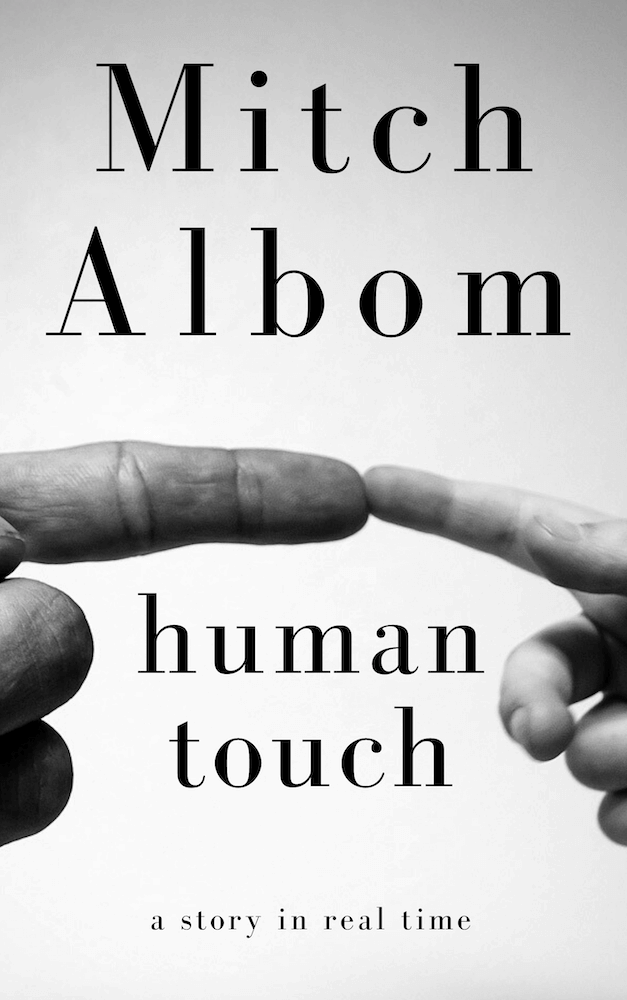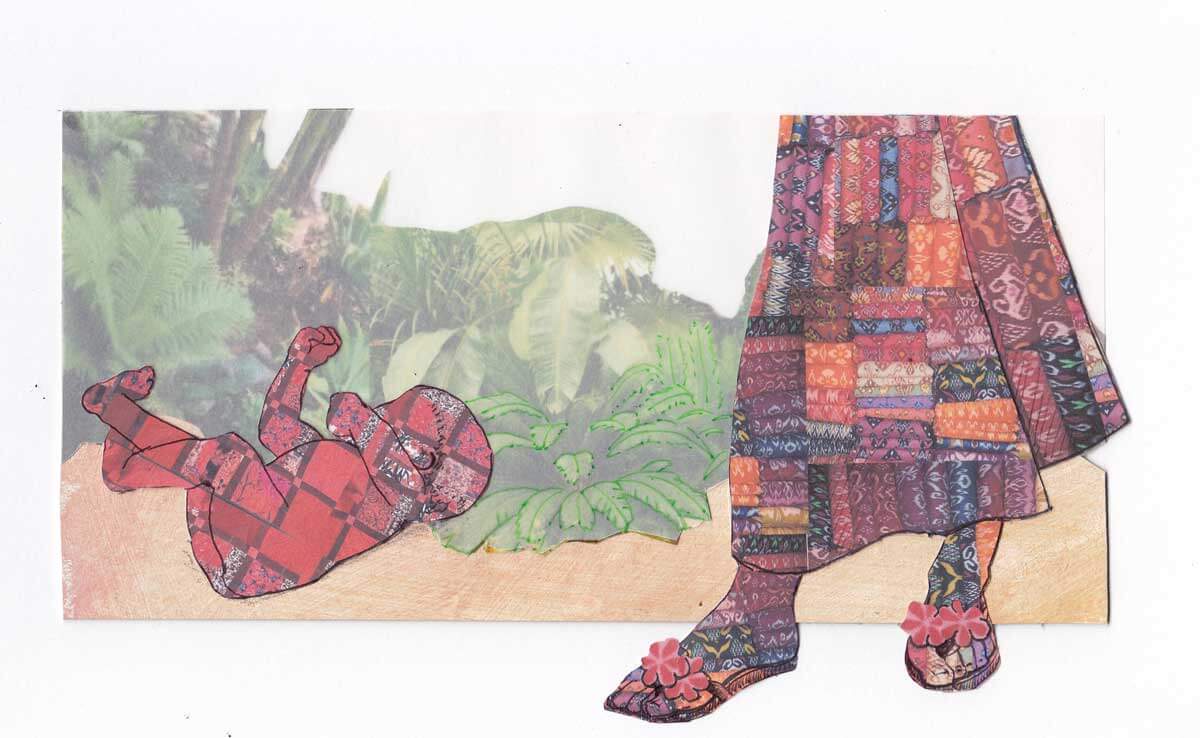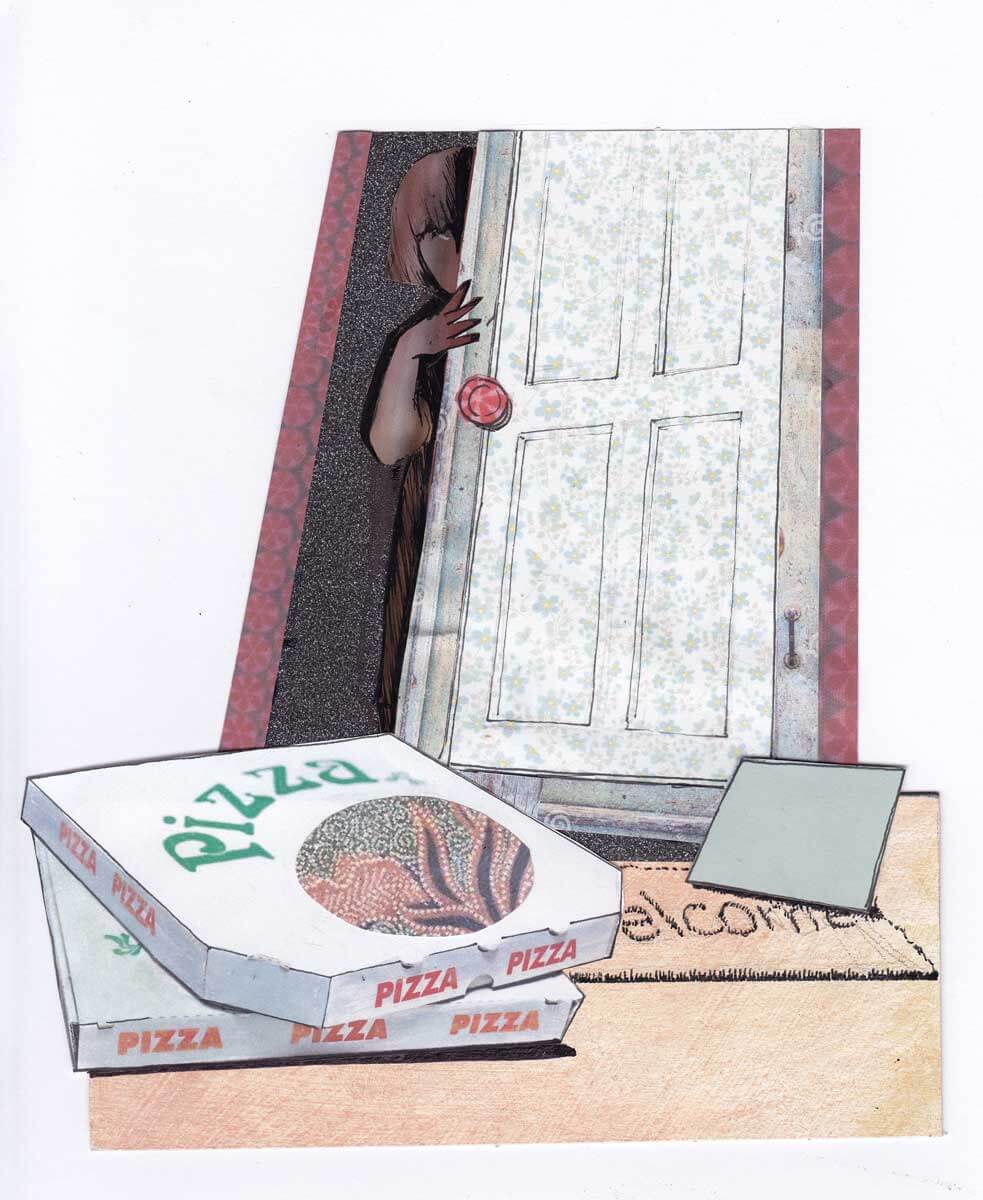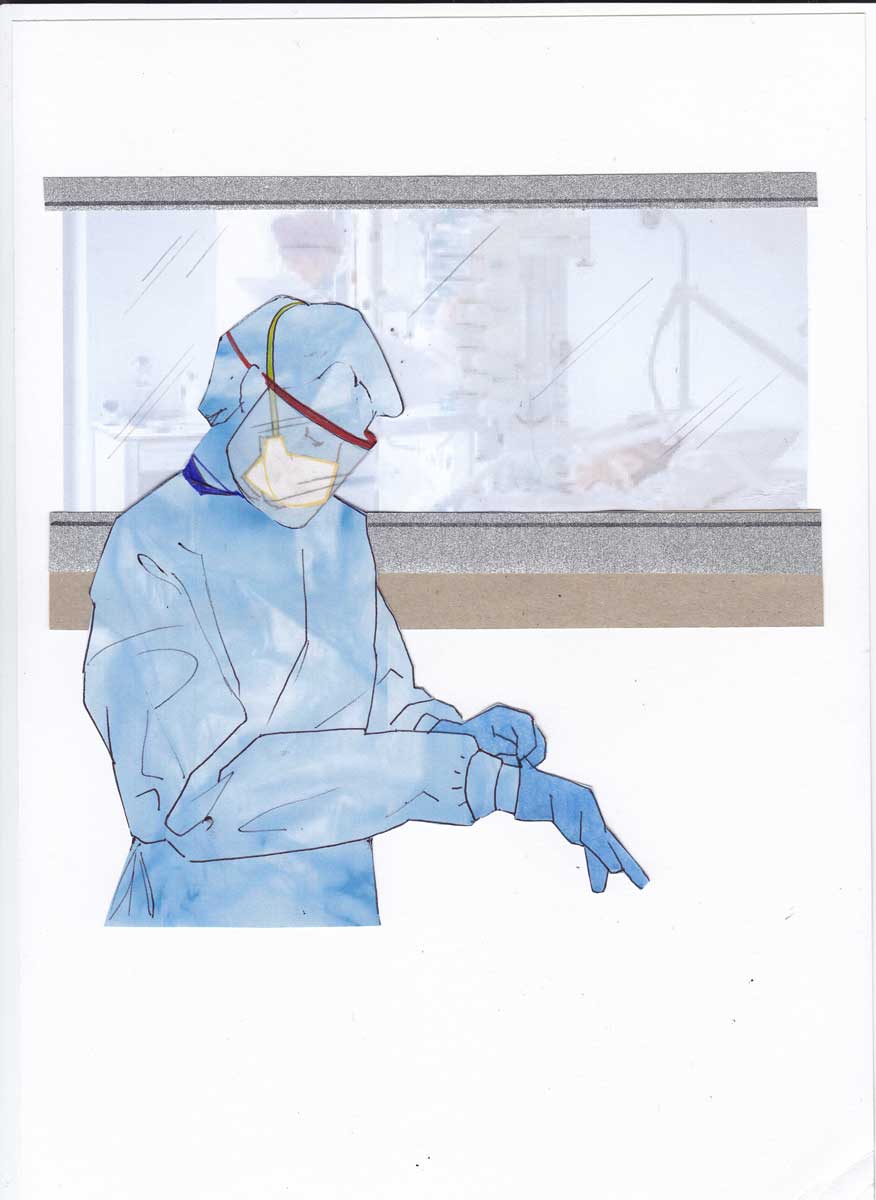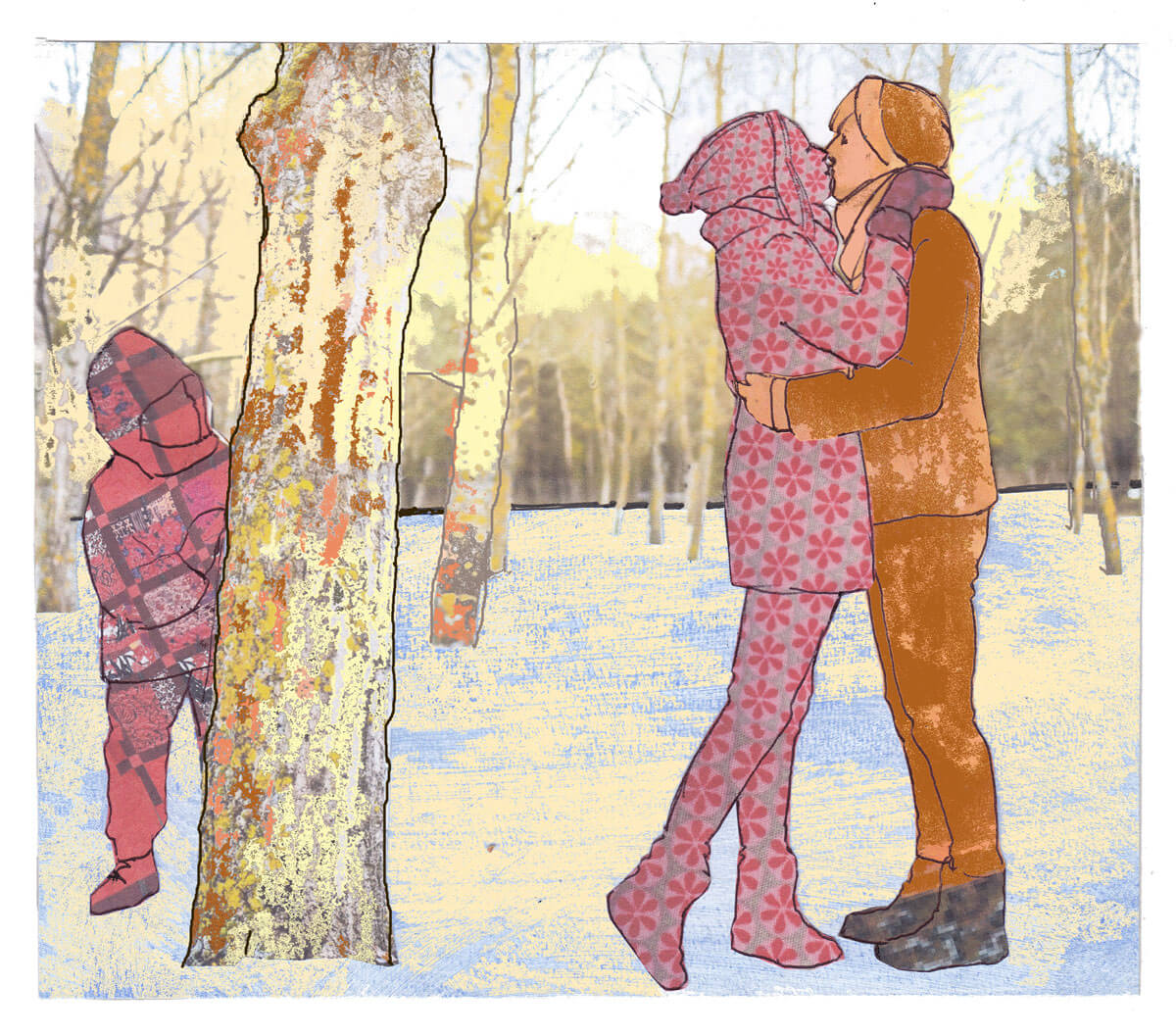Chapter Two
← Previous
Next →
Week Five
Daniel and Buck are in their grandfather’s truck. Buck is driving. They are going to get supplies for the cider mill.
“Oh, snap!” Buck says, pointing out his window. “Look at that!”
On a snowy hill, by the south end of a large, 10-acre property, sits a snowmobile, all by itself.
“That’s a Polaris Titan,” Buck says.
“You sure?”
Buck stops the car. “Let’s check it out.”
They climb the hill slowly, casually. The house is a good distance away.
“You think anyone’s home?”
“The driveway’s empty.”
“Cars could be in the garage.”
“Jeee-sus, look! The keys are in it!”
Buck grins at his brother. “We gotta do this.”
“Man, I don’t know.”
“Come on. When are we ever gonna get to ride one of these? Anyhow, this is Mr. Moritz’s property. He won’t give a crap.”
Daniel looks left and right.
“What the hell,” he says.
“Yes, SIR!” Buck says, hopping on the machine.
In a minute, they are off, traversing a trail through a small patch of woods. Buck is driving, Daniel behind him. The rumbling of the engine is louder than Daniel imagined.
“Hurry up, someone’s gonna hear us!” he yells.
“Whoo!” Buck crows. “Watch this!”
He jerks the throttle and the machine lurches. Daniel grabs ahold of his brother.
“Ha! Did you shart your pants?”
“Shut up! Get us back!”
“If you’re that scared, just jump off, baby brother!”
“Screw you,” Daniel says, shoving Buck in the back. As the snowmobile slows, Daniel peels away and tumbles into the snow.
“I’m going home,” Daniel says, rising.
“Bye, baby brother!” Buck says, zooming off.
He steers the snowmobile back towards where he found it. The terrain suddenly seems boring. He shouldn’t have teased Daniel. This isn’t as much fun alone.
He slows the machine. When he crests over the hilltop, he blinks.
There, standing in front of him, is Mr. Moritz.
And a police officer.
SAM LOGS OFF his computer. The tech company where he works is almost an hour’s drive from his woodsy home, in a high rise in downtown Detroit. It occupies an entire floor, with nearly 40 employees. The windows are floor to ceiling, and there is a snack bar and coffee station open all day long. His only regret is having to leave before others to beat the traffic. He doesn’t want to be perceived as less ambitious. Partly because of that, he’s been coming in every day, even though the company has encouraged people to work from home, to protect against the spread of the virus. But Sam wants to prove how seriously he takes his job.
“See you all tomorrow,” he says.
A few co-workers mumble “See ya” as Sam heads to the elevator. His car is parked in a nearby structure.
When he exits the building, a cold wind hits his face. At the corner of Woodward Avenue, he bounces on his feet, waiting for the light to change. Suddenly he hears a loud voice.
“Hey! Stay off the street!”
Sam sees a tall man in a black pea coat.
“Stop spreading your germs!” the man yells.
Sam realizes the man is screaming at him. He looks away. The light changes and he crosses quickly, his head lowered.
“Yeah, I’m talking to you, Chinaman! Get off the street!”
Sam quickens his pace. He enters the parking structure. His car is on the second floor. He doesn’t want to look, but he can’t help it. He glances over his shoulder.
The man is following him.
“I oughta take you out right now, Chink!”
His voice echoes in the cavernous structure. Sam’s heart is thumping. Why isn’t there anyone around? He sees his car. He starts running.
“Yeah, you better run! Run back to Wooo-han, you poison scumbag!”
Sam is breathing hard. He fumbles with the key. The locks snap open. He jumps inside, starts the car, backs out fast and slams the brake.
Just then the man runs out and crashes the hood with both fists. His face is just a foot from the windshield. Sam sees his unshaven chin, his narrow nose, his eyes squinting in disgust. The man sucks in his cheeks and launches a wad of spit onto the glass.
He slams his fists again – WHOMP! – and leaves.
Sam is frozen. He wants to holler. He wants to hit something. For an instant, he wishes he had a gun. Where is everybody? Why am I the only one seeing this?
He watches the spittle run down the windshield, a slow glob of hate. He reaches for the wiper switch — his hand is trembling — and the blades smear the spit into a foamy stain.
Sam screeches the car away and curses at the top of his lungs.
IT IS SATURDAY, time for another get-together. This time the families are gathered in the Winstons’ two story colonial home, eating from trays of cold cuts: turkey breast, ham, roast beef, American cheese, tomatoes, pickles, pita bread and onions.
“Where are the Ricketts?” Aimee says.
“I don’t know,” Lilly says. “I thought they were coming.”
“Well, you heard what happened with Buck.”
“Yeah. What was he thinking?.”
Greg folds a pita around some turkey and cheese. “I heard he’s in jail.”
“For joyriding a snowmobile?” Cindy says.
“Wasn’t his first run-in,” Greg says.
“I’m sure he’s out by now, right?”
The conversation shifts to the virus, and the various things it has now shut down. Sports teams are no longer playing. Concerts have been cancelled. Gatherings of over 100 people are no longer permitted by the government. Anyone suspected of being sick is being asked to self-quarantine for 14 days.
“I don’t get it,” Lilly says. “You can only catch this virus if someone is sneezing or coughing at you, right? So why do they have to shut down so many things?”
“I guess it’s all or nothing,” Cindy says.
Sam stares at her. He has been quiet since they got here.
“You all right?” Cindy whispers.
Sam has not told Cindy about the parking lot incident. He doesn’t want to scare her. Or admit how scared he was.
“Greg,” Pastor Winston says, “what does ‘pandemic’ actually mean?”
Greg swallows a bite of his sandwich. “Technically it just means a disease that spreads really wide. But if you’re asking what the World Health Organization means when it called this a pandemic?…”
“Right,” Winston says.
Greg sighs. “It means we’re not gonna stop it.”
Everyone goes silent.
“And what does that mean?”
“We took my mother out of assisted living,” Aimee says.
“Where is she now?”
“At our house.”
“Aimee, why didn’t you bring her?”
“She’s tired. The thing is, people her age, they can die from this. And if someone gets sick in an assisted living place, you know it’s going to spread.”
Lilly rises. “Well, I’m just thankful it doesn’t hit children. When they closed the twins’ school I was worried they would all get it.”
“What happened with that cook?”
“Juliana? I feel bad for her.”
“She’s in isolation.”
“And all the teachers she came in contact with have to stay home.”
“Rosebaby,” Aimee says, “How is Little Moses doing?”
Roseybaby is sipping a glass of juice. “Mm. He is fine, yes,” she says.
“No fever or anything?”
Lilly looks at Rosebaby, who catches her glance but ignores it.
“Moses is fine,” she says.
Lilly goes to the sliding rear door, and sees her three kids playing outside in a snow fort, Todd, who is 11, and her nine-year-old twins, Devon and Didi, plus Ava, Mia, and Little Moses.
Lilly opens the door.
“Five more minutes, kids, OK? Then you come in and eat.”
“Ok, Miss!” Little Moses yells back.
She thinks back to last Friday, when Rosebaby made her unexpected confession at the church.
She pulls the door shut.
“He is not my son,” Rosebaby had said.
This took the Winstons by surprise. They had assumed, from the moment Little Moses arrived in their town, that Rosebaby was his mother, and she had just been waiting for his Haitian paperwork to clear. That was the story. And the way they clung to each other! How could you doubt it?
But that day, in the sanctuary, Rosebaby confessed that she had not given birth to Little Moses. The truth, she said, was that she found him in the woods when he was just weeks old.
“I was visiting a friend in a hospital out in the province,” she explained. “When I walked back to her village, I took a shorter path that went through the trees.
“It was very thick. I heard a sound. At first, I thought it was a strange bird. But as I came closer, I saw it was a baby. A newborn. The way he cried was unlike anything I have ever heard before.”
She paused. Pastor Winston put his hand on hers.
“Go on, Rosebaby. It’s all right.”
She cleared her throat. “Someone left him there to die, Pastor. Who knows how long he’d been there? He was not even wrapped in a blanket. Just lying in the dirt. There was a white candle nearby. And a drawing on a paper that was nailed in a tree. The drawing was of animals. I did not understand it.
“I took the baby with me. No one in the village knew anything about him. It is very poor there. People are only concerned with finding enough food to eat.
“What was I do? I prayed for an answer. I was not married. I had no man in my life. I thought, this boy, perhaps, he was left for me to find. Perhaps it is what God chose for me.”
She stopped again. “Forgive me, Pastor. To presume God’s will is a sin. I know.”
“Rosebaby, you did nothing wrong,” Pastor Winston said. “You saved his life.”
“There is more. Before I left the village, I was told I must take the baby to a man. He is, what do you call here, a healer? In vodou.”
Lilly and Winston exchanged a look.
“I do not follow vodou, Pastor. I am a Christian. A good Christian. But this was what I was told to do. The healer lived in a small hut. He had many things there. Animals in little cages. Woods. Plates. Small statues. He took the baby and blessed him. At first, I thought this was OK.”
“And then?” Winston asked.
“And then he took a needle and poked the baby’s toe until he bled. Little Moses did not cry. He did not make a sound. The healer took the blood and rubbed it in a dish. A dish full of herbs. Then he put it on his finger and put his finger in the baby’s mouth. I wanted to tell him not to do this, it is not safe, a baby so young. But I was so full of fear. My body was stiff like metal.”
She shook her head.
“What happened next?” Winston asked.
“The mansaid I could go. He said because I was taking the burden of raising the baby, the Loa would help me. The Loa are spirits under God.”
“How would they help you?”
“By never letting the child get sick.”
She leaned in.
“And he never has. To God, I swear it.”
“Wait,” Lilly said. “You mean, Moses has never had the measles, or chicken pox, things like that?”
“Miss Lilly,” Rosebaby said. “He has never had a cold.”
“And he’s how old now?” Winston asked.
“Eight.”
Then Rosebaby clasped her hands together and said she had prayed all night. Just before the sun rose, she had a vision.
“What kind of vision?” Winston asked, not sure he wanted to hear the answer.
“This virus that is coming for us?” she said. “Little Moses will never get it.”
She lowered her eyes.
“But he will be sacrificed for it.”
Week Six
The line outside the Ricketts Family Cider Mill stretches through the parking lot. Inside, the small counter area is crowded with customers who have all but emptied the shelves.
“Just so you folks know, we’re out of bottled water!” Old Man Ricketts yells.
A groan goes through the crowd.
“Still got lots of cider!” he adds.
“I can ring someone up here!” Charlene yells from behind the cash register.
She adjusts her plastic gloves. Every day has been like this since the Governor announced all businesses and schools would close for the next two weeks, except hardware stores, gas stations, drug stores, supermarkets and other places, like the mill, that sold food.
The phone rings. Old Man Ricketts grabs it.
“Cider mill,” he barks. He pauses. He turns his back to the customers. Then he explodes.
“What the hell for? He’s seventeen!…No, goddammit, you listen to me! You get him out of there!…No…No!….I don’t care what you gotta do! Get him out or I swear I’ll come down there with a shotgun and get him out myself!”
He slams the phone down. Charlene pulls in a breath. He turns to her, his eyes furious.
“Five days, they want to keep him locked up! Can you goddamn believe this?”
Charlene bites her lip and rings up the next customer, who looks at her suspiciously.
“Family issue,” Charlene mumbles.
The customer forces a smile.
“Where the hell is Daniel?” Ricketts yells.
“He’s working,” Charlene hisses, her voice a gruff whisper. “Leave him out of this.”
DANIEL CLOSES his car trunk on 18 boxes of pizza. He can’t believe how busy the branch is. Ever since the virus closed most restaurants, pizza orders have quadrupled. A buddy of his said they’d all make more tips, but to Daniel it’s just more work.
He’s been doing this job since the school year started. He never liked it. The kids razz him for wearing the red and blue outfit with the stupid pointy hat. And most people only tip him two dollars.
He drives to the first address on his delivery list, a ranch house in a subdivision. He opens the car door. The wind is howling and it blows his hat off.
“Damn it,” he mumbles, chasing the hat across the snowy lawn. He retrieves it and shoves it in his coat pocket. He takes two pizzas from his trunk and walks up a concrete path.
The front door opens slightly.
“Leave it there!” a woman’s voice says.
“Excuse me?”
“Don’t come any closer.”
Daniel stops.
“Excuse me?”
The woman cracks the door a few more inches.
“The money’s in here,” she says, waving an envelope. “Just leave the pizzas on the stoop.”
She places the envelope outside the door then closes it.
“Excuse me?”
Daniel waits a moment, processing all this. Then he walks to the stoop, picks up the envelope and puts down the pizzas. Through a small pane of glass, he sees the woman standing a good 10 feet back from the door, her children behind her.
Daniel returns to his car.
This stupid job just got worse.
AIMEE IS FLUFFING pillows on the guestroom bed.
“I can do that myself,” her mother, Ginger, says.
“I got it, Mom.”
“I was fine where I was. I had my own room. And friends.”
“Mom, if the virus got inside your building, how would you protect yourself? You have delivery people, cooks, front desk, all the other residents there, all touching things – doorknobs, handles, food trays – all things you could touch and then you’d be infected.”
Her mother shrugs. “So I’d be infected.”
“Don’t say that.”
“We all have to go sometime.”
“Yeah, well, not right now, OK?”
Ginger sees a mirror above the bureau and uses her cane to walk to it. Her reflection reveals the short white hair, cut in a bob, her bright red lipstick, her eyeglasses with the sparkly stones, and her sharp smile when she flashes it. She is thin and stooped now. But she remembers a time when she danced five nights a week at a dinner club, part of a musical review. Even today, at 83, her legs, she thinks, are her best feature. Or were, until she fell last year.
“I’ll be fine,” she tells her daughter.
Mia comes thumping down the steps.
“Grandma!” she squeals, squeezing Ginger around the waist.
“Good morning, sweetheart.”
“I don’t have school.”
“I heard.”
“’Cause of the virus.”
“Umm-hmm.”
“You still have school on the computer,” Aimee says. “Get your sister to help you log in.”
“Awwww.”
“Now.”
Mia clomps away. Ginger watches her go.
“She reminds me of you,” Ginger tells Aimee.
“Which part? Hugging her grandmother, or resenting her mother?”
Ginger smiles. “Both.”
She pauses.
Aimee pauses. “You know,” she says, “next month was when we were renewing our vows. We still have the restaurant rented. I wonder if they’ll even be open.”
Ginger studies her daughter.
“How are you and Greg holding up?”
AT THE HOSPITAL, Greg is covered by a blue surgical gown, blue gloves, blue booties, an N95 respirator mask, and an eye shield.
“Jesus, the Lions don’t wear this much equipment,” he says to his fellow doctor Jerry.
“Our record’s better than the Lions,” Jerry says.
Gallows humor is routine around the emergency room now. Most of the cases are related to the virus. Greg wonders what happened to the people who used to fill these beds. Did they stop having accidents? Stop firing guns? Or is everyone too afraid to go to a hospital right now?
He remembers telling Aimee about the first virus patient they’d admitted, just two weeks ago. Now he can’t count how many are there. The emergency room is an endless soundtrack of coughing – deep, dry coughs – from patients who complain they can’t catch their breath. Fevers spike as high as 105. The most serious cases are moved to intensive care and isolated. But the chief of staff has warned they will run out of ICU beds relatively soon. Ventilators are now a hot commodity, and every hospital seems woefully short.
“Do you hear about the masks?” Jerry says.
“What?” Greg says.
“Someone took two boxes home. Now we’re all under surveillance. As if this wasn’t hard enough.”
Greg shakes his head. He looks around at the half-pulled curtains and the patients lying in the beds behind them. He does the math. It’s just a matter of time before the doctors and nurses get sick as well.
Then what? he thinks.
Ava had chosen the air. She twirls her hair while reading what she wrote. Then she continues:
“As the air, I can go where I want, which is more than many humans can say right now. I can blow through the shopping mall, which is closed to all of you. I can glide into a movie theater, which is closed to you as well.
“So you could say, right now, as the air, I am luckier than humans are.”
Ava gets a ping on her iPhone, a news story sent by a friend. The story says scientists now believe the virus can be spread by people who aren’t showing symptoms. That simply by being too close to someone who’s breathing in your direction can infect you, even if the other person doesn’t seem sick.
“Now we’ll never party!” her friend writes.
Before Ava can respond, her phone pings again. She smiles. It’s from her boyfriend, Troy. He says he is out behind the cider mill.
Can you meet me? he writes.
LITTLE MOSES IS PLAYING by a small stream. He picks up pebbles and throws them in.
“Now I will splash you,” he announces to himself.
“No, no!” he says, using another voice. “Don’t splash me!”
“You have to get splash. Everybody has to get splash.”
He throws more pebbles.
“No!” he feigns. “Now I am wet!”
He wipes his gloves on his pants. He looks up and sees Ava walking briskly to the cider mill. He runs to her.
“Hi, Ava!”
“Little Moses, why are you by yourself?”
“I’m playing rocks.”
“You should be home.”
“Where are you going?”
“The cider mill.”
“Are you getting a donut?”
“I’m not getting anything.”
She removes some lip gloss from her pocket and applies it.
“Oooh! Why you make your mouth shiny?”
“Little Moses. You need to go home. It’s dangerous to be outside now.”
“Why?”
“Because some people are sick, and you could catch it.”
“I do not get sick.”
“Wow. Lucky you.”
“You look nice now. Your mouth is all shiny.”
Ava puts the lip gloss back in her pocket.
“Thank you. Now go home, OK?”
She walks on, leaving him behind. She ducks down along the rear parking lot of the cider mill. There she sees Troy, leaning against a tree, checking his phone. He grins when he spots her.
“Hey,” he says.
“Hey back,” she says.
He opens his arms. “C’mere.”
Ava thinks for a second about the story she just read. About the air between them. Even if they don’t seem sick.
She slides into his arms. He starts kissing her. One kiss. Two. Three.
“Oooh!” she hears Little Moses yell. “I see you kissing, Ava!”
She is flushed with embarrassment.
“Who the hell is that?” Troy says.
“Come on,” she says grabbing his arm and pulling him towards the trees. She turns back, her face red.
“I told you, Little Moses! GO HOME!”
“Tell me what I should do, Lord,” Winston whispers.
The fine for violators is up to $5000. That is money Winston can’t afford. Plus there is the risk of infections if the congregation assembles. But a calling is a calling, he tells himself. Is a virus bigger than God? Didn’t churchgoers historically endure far greater dangers to gather and pray?
He remembers the book of Matthew: “I was sick and in prison, and you did not look after me.” Where is the compassion in ignoring misfortune? If a congregant is carrying the virus, isn’t it Winston’s job to minister to him? Won’t God protect the righteous?
Winston locks his fingers behind his head. He squeezes his eyes shut. Just then, he hears the chiming of the church bells. Six bells. Six o’clock. He remembers that his first born, Todd, was born at precisely 6 p.m. He was premature, a problem with his lungs, and the doctors did not give him much of a chance. But all during those six days their son was on a ventilator, Winston and Lilly prayed, and their congregation prayed for them.
On the seventh day, Todd was breathing on his own.
Winston rises. He takes the paper and folds it several times. Then he places it inside a prayer book.
Lilly enters the vestibule. She stomps the snow off her feet.
“There you are,” she says, seeing her husband.
Winston smiles.
“What?” Lilly asks, curious.
“We are going to hold services this Sunday,” he declares.
SAM OPENS his eyes. He touches his forehead. It is hot. He feels a shiver run down his back.
He rolls into his pillow. His head pounds. His arms and shoulders feel stiff.
“Oh, God,” he mumbles. The bed is empty. Cindy must be up making breakfast.
Maybe it’s just a cold. It’s still winter, technically. Mid-march. You get colds, right?
He sniffs and his cheekbones hurt. He feels so hot.
“Hey, Sam, are you up?” he hears Cindy say.
“Don’t get close!” he yells.
She freezes in the door frame. “What?”
“I’m sick.”
“What kind of sick?”
“Don’t freak out. I think I have the virus.”
Cindy puts her hands to her chest.
“Just keep a distance.”
“I slept right next to you,” she whispers.
“It doesn’t have to be contagious. Not everyone gets it.”
He exhales and moans.
“What?” Cindy says. “What?”
“I’m burning up. Where’s a thermometer?”
Cindy shakes her head frantically. “I don’t know, I don’t remember, the bathroom drawer? I’ll find it.”
She pulls her shirt over her nose and hurries to the bathroom.
“I’ll call Greg Myers,” she says.
“NO!” Sam yells.
“What do you mean, no?”
“Nobody can know, Cindy! Come here. Look at me. Look at me!”
Cindy steps to the bathroom door. She is holding a thermometer.
“We’re already Chinese germ-machines to people,” Sam says. “They find out I have this, we won’t be able to leave the house.”
“Don’t be stupid. How are you going to—”
“I’m telling you, NO! Are you listening to me? You don’t know how hateful people are out there!”
Cindy starts crying.
“What if it gets really serious?” she says. “What if you need the hospital?”
“I won’t.”
Sam feels sweat beading beneath his hairline. His whole body shudders.
“Throw me the thermometer.”
Downstairs, Little Moses is drawing on construction paper. He hears them yelling. He walks softly up the steps. He peeks through the bedroom door and sees Cindy throw a thermometer to Sam.
“Nobody knows I’m sick, understand?’’ Sam says. “Don’t talk to anyone!”
Cindy barely nods. Little Moses sees Sam put the thermometer under his tongue.
“Nobody,” Sam mumbles.
Little Moses backs away, trying to keep his feet from making a sound.
End of Chapter Two
Pay it Forward
If you're enjoying "Human Touch" so far, would you consider, if you're able, adding a human touch of your own by donating any amount to help my hometown city of Detroit battle the wave of coronavirus that is overwhelming it? Our citizens are struggling - and dying - in high numbers. "DETROIT BEATS COVID-19!" focuses on first responders, seniors, poor children and the homeless.
Thanks, as always,

Listen to the audio
Available for free exclusively at Audible.com. Read by Mitch Albom and a special guest!
Download as an e-book
Please consult your specific device’s manual for how to add one of these to your library.
The Story Continues …
Chapter Three
Read Now
Chapter Four
Read Now
Chapter Five
Read Now
Chapter Six
Read Now
Chapter Seven
Read Now
Chapter Eight
Read Now
About the Series
Chapter One
Read Now
Recent Books

Finding Chika is a celebration of a girl, her guardians, and the incredible bond they formed—a devastatingly beautiful portrait of what it means to be a family, regardless of how it is made.
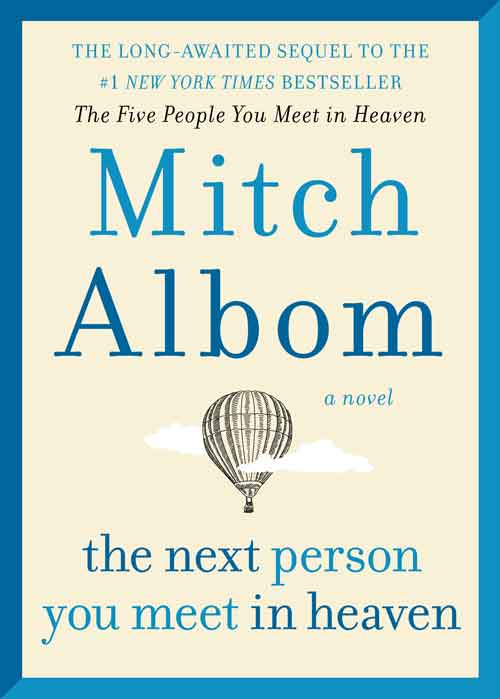
A sequel to the bestseller The Five People You Meet in Heaven, Eddie’s heavenly reunion with Annie — the little girl he saved on earth — is an unforgettable novel of how our lives and losses intersect.
There's always more to read with Shelved...
Sign up for Mitch's free newsletter. Non-spammy. When there’s something great to share, we’ll send special updates your way. Exclusive items like excerpts from a new book, signed book giveaways, event alerts, and more. Still need more? Get familiar with Shelved here.

